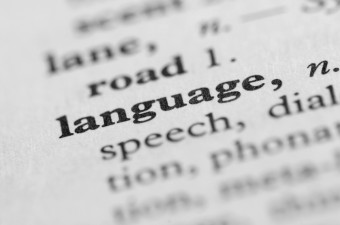Prepositions and the End of Sentences
 A great man once said, “This is the sort of English up with which I will not put.”
A great man once said, “This is the sort of English up with which I will not put.”
Eloquently highlighting the ridiculousness of strictly adhering to the rule against ending a sentence with a preposition, Winston Churchill may not have realized that his defiance is supported by history. As it turns out, there was never any such generally recognized rule. So where did the idea that you shouldn’t end a sentence with a preposition start?
Many writers in Restoration Era England (1660-1689), and in particular “Glorious John” Dryden (one of the greatest poets, dramatists and literary critics of the 17th century), believed they had vastly improved the quality of English literature over their “Tudor and Elizabethan ancestors:“
"The language, wit, and conversation of our age, are improved and refined above the last . . . these absurdities, which those poets [e.g. Shakespeare] committed [were due to] the want of education and learning."
The additional education and learning that Dryden claimed included a mastery of Latin, a language he revered. And, since in Latin one cannot end a sentence with a preposition, Dryden contended that it shouldn’t be allowed in English either. (This is the exact same bizarre reasoning behind why, for a very brief time, it was considered incorrect in some circles to split an infinitive.)
Influential, many listened to him including Bishop Robert Lowth, a fellow of the Royal Society of London and author of A Short Introduction to English Grammar (1762). An extremely popular textbook on the subject, the Short Introduction included what came to be known as “Dryden’s rule,” although even Lowth acknowledged that ending a sentence with a preposition was not only dominant “in common conversation [but also that it] suits very well with the familiar style in writing.”
Nonetheless, since Lowth, like Dryden, felt that “placing the preposition before the relative is more graceful,” and since those two literary giants were in favor of it, many adopted the style. By the dawn of the 20th century, it had taken on the characteristics of a rule – particularly among grammar school teachers.
However, literary scholars knew better (but no one was listening to them). As late as 1926, when Henry Fowler published a Dictionary of Modern English Usage, he described the “rule” as a “cherished superstition.”
As for today, according to the Oxford Dictionaries, there are four primary types of sentences where it sounds more natural to end a sentence with a preposition:
- Infinitive: Joe had no one to go with.
- Who, what, where type questions: What song were you listening to?
- Passive: The cat was let in.
- Relative clauses: That’s the man she lived with.
If you liked this article, you might also enjoy:
FYI: You can update your subscription anytime to opt in or out of the Daily Knowledge or Weekly Wrap versions of this newsletter by clicking here to update your profile. If you just want to unsubscribe altogether, scroll down and hit "unsubscribe" and please if you do that reply to this email and let me know why. I personally read all such feedback (good and bad) and take it very seriously. Thank you! - Daven Hiskey
Know someone who would enjoy this article? Click here to share it with them.
Author:
Melissa 

If you haven't already, check out our new book:
The Wise Book of Whys, where our authors meticulously answer such questions as "Why is New York Called 'The Big Apple'?" and "Why Do We Sing 'Auld Lang Syne' on New Year's Eve?" The book is available in
Print |
Kindle |
Nook | and in
audiobook form, the latter of which provides over 5 hours of audio for just $5, read by the extremely talented British voice artist Simon Whistler.
You might have missed: